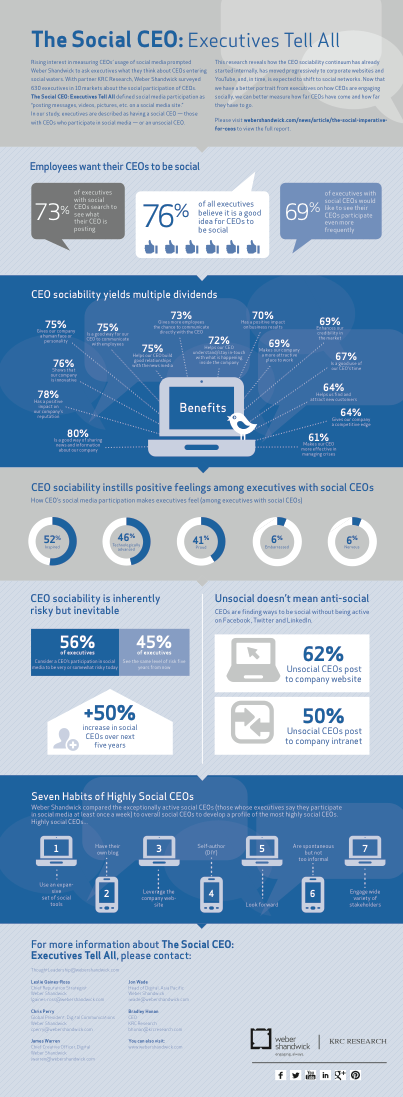Incite Group is now Reuters Events - LEARN MORE
By Tamsin Oxford - November 12th, 2014
Social intelligence is as much a part of the CEO’s arsenal as the usual skill sets expected of any business leader
An impressive 82% of senior leaders believe that executive use of social raises brand awareness and helps to establish industry leadership. If you want to build your business, build your social presence and make it authentic.



